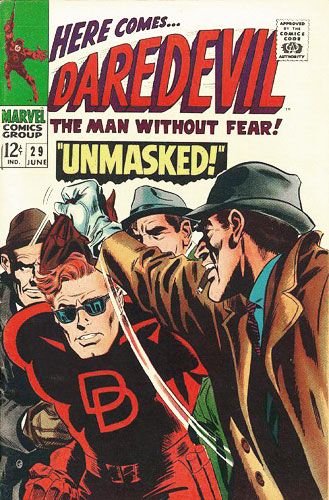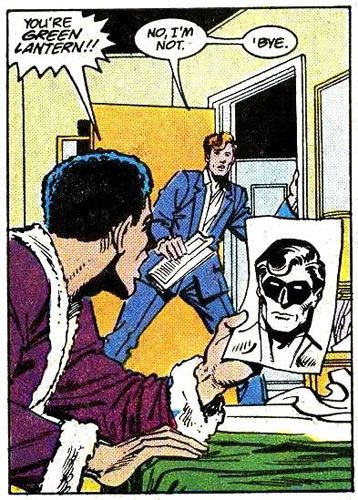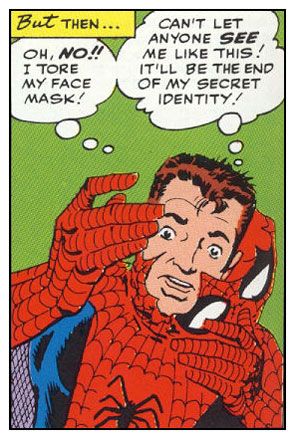With Tony Stark doing a “I AM IRON MAN” all over the place, it’s hard to remember a time when a threat to reveal a secret identity could be the entire plot of a comic book. Nowadays no one seems to want to deal with secret identities, maybe it’s too implausible (sure, because otherwise super powered heroes are everywhere, *ahem*), or unfashionable as reality shows and social networks blur the line between public and private lives. On some level there is seems to be assumption that fame is desirable for everyone, even if the cost is a person's privacy (or in the case of a superhero; the safety of loved ones).
Whatever the reason, the secret identity aspect of superheroes just isn’t a very big deal right now, but the superhero secret identity is a powerful metaphor on many levels, and one which ought to become an important device again soon. Primarily, the secret identity is an excellent metaphor for our own dual lives on and offline. There is increasing interest in reserving our privacy as we lose more and more of it to voluntarily to social networks, to (hopefully benign) NSA information mining, and to smart phone location-sharing. Moving on from these obvious correlations between online privacy and a secret identity, it is also a potent metaphor for the way a large proportion of people deal with an “invisible” long-term disease, like mental illnesses or chronic pain management.
When social networks first popped up it was generally assumed that (as in our real-space social lives) it would be possible to maintain a level of separation between them and our professional lives. Over time that has become increasingly difficult and it has generally accepted that most of us can no longer maintain a separation. Employers research potential hires on Facebook and Twitter, dates do too. Location tracking on phones not only enables us to map our routes, but also helps marketers trace our movements through stores and businesses.
Many of the early adopters of Facebook and Twitter are moving away from sharing their lives, initially as their parents’ generation migrated there and later as businesses and government began to actively monitor posts. After years of embracing social networks people are becoming more careful about which aspects of their lives are publicly shared online in order to maintain a degree of privacy. Having everything out in the open might have felt liberating at first, it has spiraled into a sort of trap and the concept of a secret identity is starting to sound appealing again. Google is dealing with demands for “the right to be forgotten” and it’s news when a smart phone doesn’t share our location with marketers we don't know about.
Away from the virtual world of social networks in a more basic sense many adults quietly deal with depression, anxiety, addiction, IBS, Crohn’s, endometriosis, allergies, injuries and a litany of other so-called "invisible diseases" every day. It isn’t that people are keeping these things secret, but because these kinds of pain can’t be seen externally it is that much harder for the world to understand or even know about them. In some instances it can be easier not to mention what is going on because of the social stigma attached, and many people choose not to risk associating themselves with a perceived weakness of disease, whether the attached stigma is logical or fair. Living with an invisible disease can begin to feel like functioning with a kind of secret identity, creating a dual aspect to lives which might overtly seem easy. By surmounting these private diseases people become their own heroes, even if no one knows what feats of strength they’re exerting.
These are just a couple of ways in which the old superhero secret identity trope is a powerful metaphor for our lives. When superheroes desperately struggle to keep their private lives separate from the world in an effort to scrape out a small square of life, they’re more relatable. The argument that the dual identity is implausible only carries us so far when we’re all working so hard to maintain our own dual identities. If superhero comics books are concerned with being realistic then the era of superheroes proudly announcing their identity must be nearing saturation point. Today the most realistic, relatable move a superhero could make would be to have an elaborate, secret, “ordinary” life... just like the rest of us.




